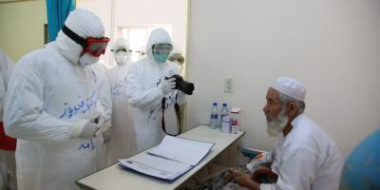Afghanistan's Justice Training Transition Program (JTTP)
Launched in March 2013 in partnership with the Afghan government, the Justice Training Transition Program (JTTP) offers justice professionals unprecedented levels of training in core legal skills and competencies. It provides continuing education courses on Afghan law to provincial courts, the Ministry of Justice and other government bodies. By far our most ambitious program anywhere, JTTP also provides criminal justice training and mentoring for Afghan prosecutors, judges, defense attorneys and investigators.










